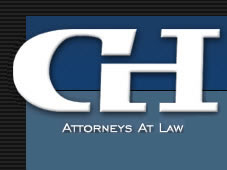It has long been a requirement that any subcontractor or material supplier seeking to enforce a mechanic's lien must first file a 20-day preliminary notice. The requirement existed before the California legislature revised laws relating to mechanic's liens and stop notices in 2012, and similar requirements exist after 2012.
Both before and after the rule changes occurred, a 20-day preliminary notice could be served by certified mail, return receipt requested. Prior to 2012, however, the lien claimant was also required to prove the actual receipt of the notice by a proof of service affidavit that was accompanied either by the signed return receipt, a photocopy of the record of delivery, or, if the envelope was not delivered, the returned envelope itself. (Civil Code § 3097(f).)
In Hub Construction Specialties, Inc. v. Esperanza Charities, Inc. (2016) ---- Cal.App.4th ----, February 10, 2016 DJDAR 1395, the plaintiff (the subcontractor) sought to enforce a mechanic's lien. It served a 20-day preliminary notice, which the defendant acknowledged receiving. The plaintiff did not, however, have a copy of the actual return receipt or a photocopy of the record of delivery and receipt maintained by the post office. The plaintiff did, nevertheless, have the record from the post office acknowledging the delivery that was maintained in electronic format.
The defendant defended on the basis that the plaintiff was unable to comply with the proof of delivery requirement set forth in Civil Code § 3097(f), contending that the notice requirements of the mechanic's lien law required strict compliance. The parties agreed to the facts to submit to the court on the one issue as to whether or not the notice was properly given. The court found that strict compliance was required and dismissed the action.
The plaintiff appealed and the court reversed, holding that while the notice requirements of the mechanic's lien law generally required strict compliance, the mechanic's lien law itself was remedial legislation that was to be liberally construed. The court then focused on the fact that the defendants all acknowledged the actual receipt of the preliminary notice, finding that the plaintiff did strictly comply with the notice requirements.
The court determined that the issue was not one of notice but one of proof, which the court found did not require strict compliance but substantial compliance. The court, in addition to reversing the order releasing the property from the lien, vacated that order and entered a new order for foreclosure of the mechanic's lien, with the plaintiff to recover costs on appeal.
The holding in this case is somewhat limited to notices that were served prior to July 1, 2012. After that date, the proof requirements are more relaxed and permit proof by providing a certified mailer manifest from the post office that shows actual delivery.
Although this case has limited applicability, it reminds all mechanic's lien claimants to carefully review their 20-day preliminary notices before they are sent to make sure that they are properly completed and, more importantly, that the notices are properly served. After all, the failure to properly serve the notice can doom any subsequent mechanic's lien enforcement action.
Darryl Horowitt, Esq., has conducted all phases of litigation in the areas of Banking, Business Disputes, Securities Fraud (class action and individual), Construction, Real Estate, Environmental, Casualty Insurance Defense, Personal Injury and Commercial Collections, from initial client contact to settlement, mediation, arbitration and trial - court and jury (State and Federal Court) and administrative proceedings (before the United States Environmental Protection Agency, Department of Agriculture, National Labor Relations Board, California Department of Fair Housing and Employment, Worker's Compensation Appeals Board and Agricultural Labor Relations Board).
©Copyright - All Rights Reserved
DO NOT REPRODUCE WITHOUT WRITTEN PERMISSION BY AUTHOR.










